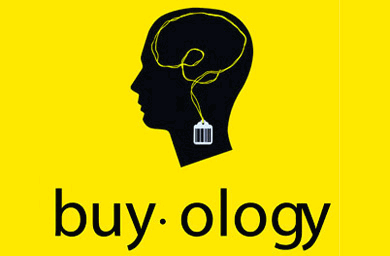Buyology: Truth and Lies About Why We Buy by Martin Lindstrom is a fun, eye-opening book. It explores the field of neural marketing, which is a mix of marketing, behavioral economics, and cognitive science (think commercials + FMRI’s).
It uses an adventure-like narrative to describe some of the procedures and has some fun little tidbits in it, like how car commercials were virtual clones (you could swap one for another without brand/product recognition), yet the mini-cooper stood out because it activated the cute facial recognition part of our brains. Maybe I’m not the only one who sees headlights as eyes and grills as mouths.
The key points for me were:
– If one brand’s presence dominates a show, side advertisers may be wasting their money
– Rituals can make a product stick
– Little details, like headquarters listed make huge differences
– Non-important or non-existent magic mystery elements sell!
– Breakable brands are more likely to succeed
– Sex and religion in advertising aren’t always the best policy
– Associated messages (truly subliminal ones) are extremely powerful
The biggest question I had with it was if there was research done on how the warning labels and anti-smoking commercials impact non-smokers. While the book shows the counterproductive impact on those who are addicted, I wonder how they impact potential consumers who are not addicted.

![Freakonomics [Revised and Expanded]: A Rogue Economist Explores the Hidden Side of Everything](http://ecx.images-amazon.com/images/I/51Z1scnqz1L._SL160_.jpg)